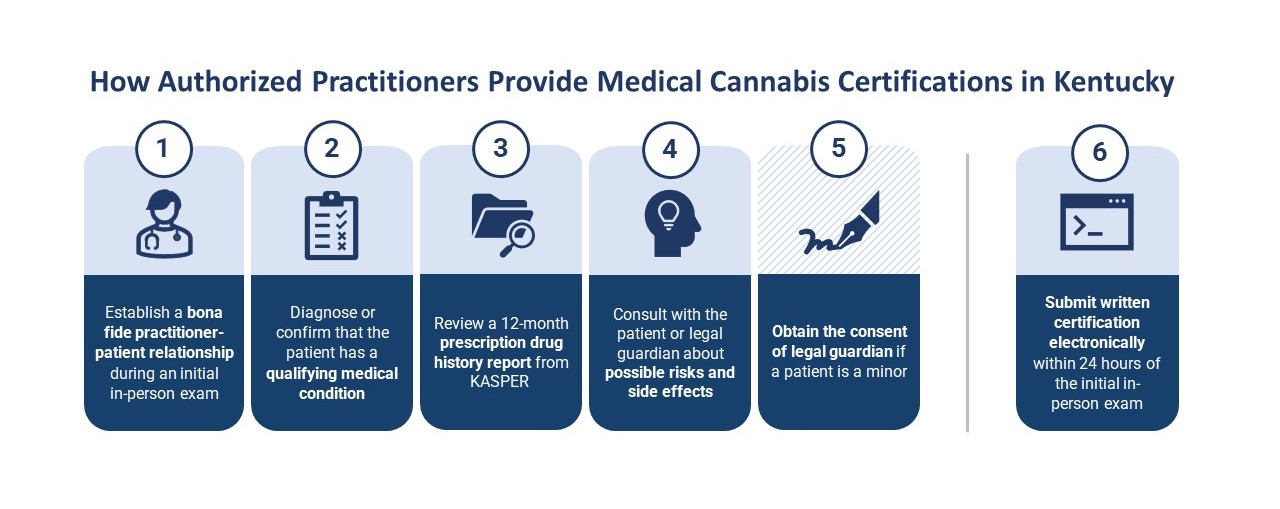Providing Written Certifications
Physicians and advanced practice registered nurses ("APRNs") must be authorized through their respective licensing board in order to register with the Program as a medical cannabis practitioner. You can register as a practitioner through the Practitioner Authorization Registration Portal here.
After performing all actions required and determining that a patient meets the criteria for a diagnosis which qualifies them for medical cannabis treatment, a practitioner must record a certification in the state's medical cannabis practitioner registry within 24 hours of the patient's in-person examination.
Click the button below to create an account or access the portal.
Medical Cannabis Practitioner Registration Portal
Once you have logged into your account, select +Create New Application from the left panel on the dashboard. This will prompt the "New Application" box in which the user must select Show All.
The expanded box will include additional application options, including New Practitioner Registration and Electronic Practitioner Certification.
For additional information regarding how to enter a written certification, please view the Authorized Practitioner Registration Guide, specifically pages 31-40.

A medical cannabis practitioner may only provide written certifications for the use of medical cannabis after they have become authorized by a state licensing board to provide written certifications and they have registered with the state.
KRS 218B.050 provides how these practitioners may provide a patient with a written certification. The process is:
- The practitioner must establish a bona fide practitioner-patient relationship with the patient;
- The practitioner must diagnose the patient, or confirmed a diagnosis provided by another health care provider, with a medical condition that the practitioner believes the patient is likely to receive safe and effective therapeutic or palliative benefit from the use of medical cannabis;
- The practitioner must review a report of information from the electronic monitoring system established by KRS 218A.202 related to the patient for a period of time that covers at least 12 months immediately preceding the date of the report;
- The practitioner must consult with the patient, or the patient's custodial parent or legal guardian responsible for providing consent to treatment is the patient is a minor child, with respect to the possible risks and side effects associated with medical cannabis, including possible interactions between medicinal cannabis and any other drug or medication the patient is taking at that time; and
- The practitioner must obtain the consent of the patient's custodial parent or legal guardian responsible for providing consent to treatment, if the patient is a minor child.
An initial written certification shall be provided during the in-person examination of the patient by the medical cannabis practitioner. Subsequent written certifications, including for the purpose of renewing a registry identification card (also known as a medical cannabis card), may be provided electronically or during the course of a telehealth consultation.
What is a bona fide practitioner-patient relationship?
A bona fide practitioner-patient relationship is defined by KRS 218B.010. It means a treating or consulting relationship, during the course of which the medical cannabis practitioner has:
- Completed an initial in-person examination and assessment of the patient's medical history and current medical condition;
- Consulted with the patient with respect to the possible medical, therapeutic, and palliative properties of medical cannabis;
- Advised the patient of the possible risks and side effects associated with the use of medical cannabis, including possible interactions between medical cannabis and any other drug or medication that the patient is taking at that time; and
- Established an expectation that the practitioner will provide follow-up care and treatment to the patient in accordance with administrative regulations.
A bona fide practitioner-patient relationship must be established during an initial in-person visit, but can be maintained via telehealth.
How long does a written certification last?
For the purpose of applying for a registry identification card (also known as a medical cannabis card),
a written certification shall be valid for a period of not more than 60 days. However, a medical cannabis practitioner may renew a written certification for an additional three periods of no more than 60 days each.
After the additional extensions, the medical cannabis practitioner may issue another written certification to the patient only after an in-person examination or an examination conducted via telehealth of the patient.
Resources
Authorized Practitioner Registration Guide
Authorizations - Quick Reference Guide
Written Certifications - Quick Reference Guide